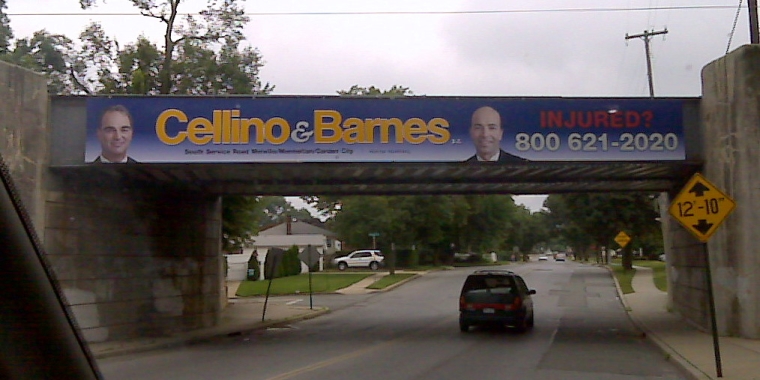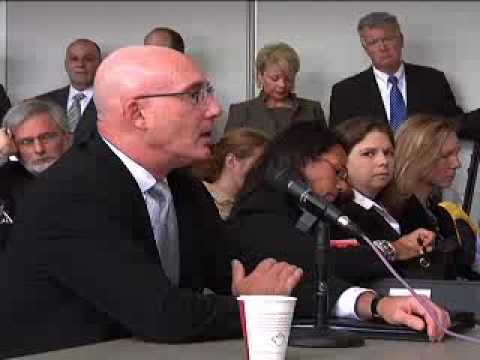
Senator Johnson, Carle Place Residents, Rail Against Giant MTA Billboard in Residential Neighborhood
Craig M. Johnson
August 3, 2009

CARLE PLACE, N.Y. -- Senator Craig M. Johnson, (D-Nassau), was joined by outraged Carle Place residents today to urge the Metropolitan Transportation Authority to revisit their decision to allow a massive commercial billboard to be hung off a train trellis in the middle of a residential neighborhood. Senator Johnson also announced legislation that will require the MTA to develop standards that would draw a distinction between advertising that could be placed in residential districts and in other areas.
“This is one step away from putting a giant neon sign in the middle of this neighborhood,” Senator Johnson said. “The MTA showed little regard for this community by making the rail bridge available for advertising and by allowing this garishly large billboard to be placed there. If they don't want to be a good neighbor, then we have no choice but to require them to take us into account.”
Numerous residents have contacted Senator Johnson's office to complain that the recently installed billboard, which was placed on rail bridge on Cherry Lane nearCarle Place High School, has distracted drivers, slowed traffic, and is out of sync with the character with its residential surroundings.
“The MTA has once again shown it has no regard for the neighborhoods that it touches. Cherry Lane is not Queens Boulevard and Carle Place is not New York City,” said Peter McDonnell, President of the Carle Place Civic Association. “I thank Senator Johnson for joining us in fighting to preserve the suburban character of our community.”
McDonnell and Senator Johnson were joined by residents from the Cherry Lane area.
Senator Johnson's legislation, (S.6100), would direct the MTA to develop a set of guidelines in determining the size of advertisements on their property. These guidelines include: providing for maximum visibility along the MTA commuter rail district and their connecting roads and highways; preventing unreasonable distractions for motorists; and preserving, or improving, the aesthetic quality, and natural beauty of properties and its surrounding areas. Presently, there are no such guidelines in place.
“These are commonsense standards,” Senator Johnson said. “There needs to be a clear distinction between advertising that can go on a highway and advertising that can go in the hearts of our communities.”
-30-
Share this Article or Press Release
Newsroom
Go to NewsroomNewsday Coverage of Senator Johnson's MTA Capital Plan Hearing
October 30, 2009

Senator Johnson Holds First Ever Public Hearing on MTA Capital Plan
October 30, 2009

